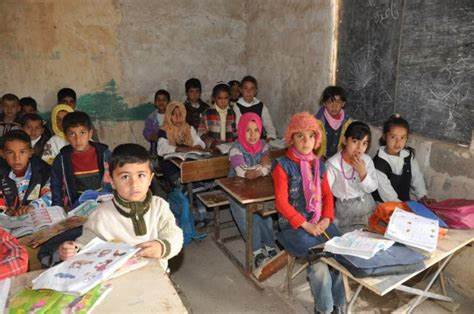This is the VOA Special English Education Report.
The United States Agency for International Development, U-S-A-I-D, has begun a project to rebuild education in Iraq. Some Iraqi schools have started again following the American-led war in that country.
The project is called RISE, for the Revitalization of Iraqi Schools and Stabilization of Education. U-S-A-I-D chose a company called Creative Associates International of Washington, D.C., to lead the efforts. Other organizations will join the project.
The first duty of Creative Associates will be to provide schools with materials. The organization says improving Iraqi schools will mean improving teaching and expanding schools. A team will work with Iraqi teachers. These teachers then are to train others.
In five areas of Iraq, special projects will be launched for educating girls. Other projects will deal with the needs of older students and young people who are out of school. Iraqi organizations based in the United States will help provide basic services.
Creative Associates received a one-year, one-million-dollar order to begin work in Iraq. The company handles similar projects in other nations including Afghanistan. U-S-A-I-D says the goal of the United States government is to make sure Iraqi children are prepared for the new school year beginning in September.
Iraq has about six-thousand schools for its youngest children. American officials say many schools were in poor condition before the war. Others were damaged during the war, and during the looting that followed the ouster of Iraqi President Saddam Hussein.
In the Babel Secondary School for Girls in Baghdad, for example, most books, desks, pipes and lighting devices were stolen or wrecked. All the school’s new science equipment was broken.
School director Nuria Hatem says the teaching system and the books must be changed. She says the influence of Saddam Hussein and his Baath Party on school subjects must be removed.
Khalida al Qubaisi directs another school in Baghdad. Missus Qubaisi says teachers have been limited in subject material. She says even writing work often had to be about Saddam. Now, she says, students are free to write about many subjects.
This VOA Special English Education Report was written by Jerilyn Watson.
